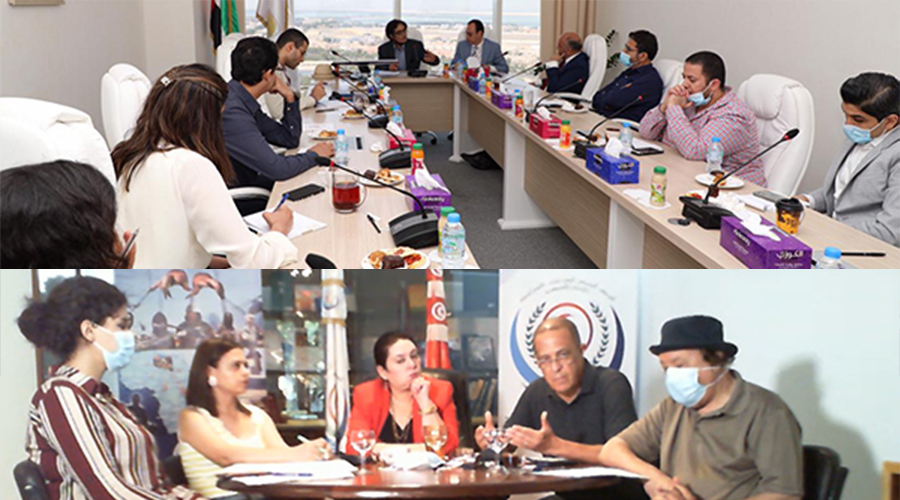
The Future Center for Advanced Researches and Studies organized a panel discussion on the dimensions and the future of the current Tunisian crisis, in the light of the decisions which president Kais Saied made on July 25, 2021. The center hosted, via video conference, Dr Badra Gaaloul, manager of the International Centre for Strategic, Security and Military Studies, together with a number of experts and researchers from the centre in Tunisia. In addition, Tunisian writer Salim Daifallah participated in the panel discussion from the premises of the Future Center in Abu Dhabi.
The Tunisian speakers affirmed that Al-Nahda Movement, is responsible for all the disasters that Tunisia has faced lately. They also discussed the exceptional decisions that President Saied made on July 25, refusing to consider these decision as a 'coup', and stressing that Tunisian citizens welcomed and celebrated these decisions in the streets. They emphasized that the president made these decisions in response to the demands of the Tunisians. They were fed up with the state of political stagnation which Tunisia fell into- a state that left almost no prospect of corruption being combated, or economic conditions being improved, especially with the spread of the Coronavirus pandemic, which showed how fragile the health system under Al-Nahda rule was. They asserted that it was the people who repeatedly demanded these decisions against the ruling politicians (notably the government and the parliament). They pointed out that the youth that protested in the streets were not affiliated with any political party but were simply motivated by their keenness on their country's good.
The Tunisian experts and researchers also discussed the regional and international reactions to the president's decisions, including the reactions of European countries and the USA; most, if not all, states recommended a civilized and sensible dialogue between the various political forces in Tunisia, and warned the Tunisians of the consequences of acting violently.
The workshop was concluded by discussing the possible future scenarios for the resolution of the crisis, and likely reactions of the Al-Nahda leaders to the president's decisions.

